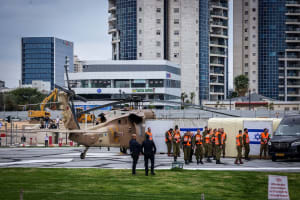BBC reporting from missile impact site in Rishon LeZion

On June 14th visitors to the BBC news website found reporting from the city of Rishon LeZion, which was one of the locations hit in the previous night’s ballistic missile attacks from Iran.
In the afternoon the BBC News website published a report by Hugo Bachega titled “‘Destruction all around’: BBC reports from Israeli city targeted by Iran”.
“BBC Middle East Correspondent Hugo Bachega reports from Rishon LeZion, a city just outside of Tel Aviv which was hit by overnight Iran strikes.
The IDF said more than 200 missiles were fired as part of the Iranian response to the large scale attacks carried out by Israel.
They have urged residents to “stay alert” he said, adding “the authorities in Israel are indicating that this could be the beginning of a prolonged campaign against Iran.””
Notably, Bachega focused on the topic of “destruction” in that report, failing to inform viewers that – as had been known for hours before his report was published – two people had been killed in that attack while another died as the result of an additional attack in Ramat Gan.
Another report by a BBC journalist visiting Rishon LeZion appeared on the BBC News website on the evening of June 14th. Titled “‘It’s heavy on the heart’: Israelis survey damage in city hit by Iranian missile” and credited to Tom Bennett, that report does briefly mention the three fatalities but only names one.
“Two were killed in Rishon LeZion, with one named by Israeli media as 73-year-old Israel Aloni. Around 19 others were injured.”
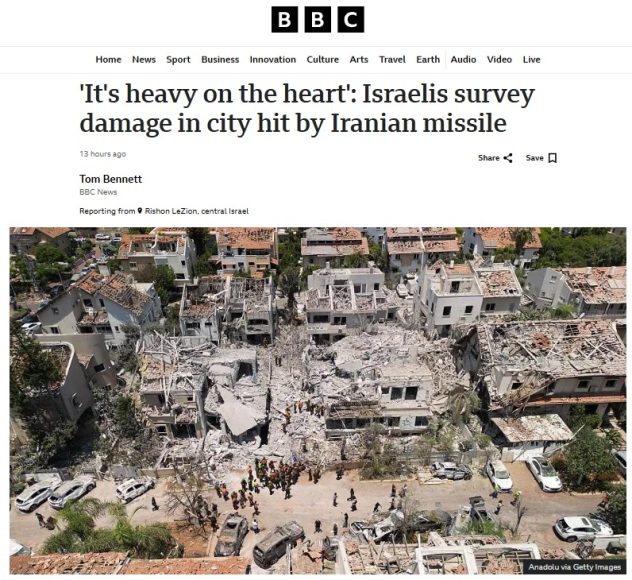
And:
“A total of three people were killed across the country in the overnight strikes – two here in Rishon LeZion, one in the nearby city of Ramat Gan. About 76 were injured.”
However, the sentence Bennett chose to write after that one is particularly remarkable:
“But the destruction – even in these worst-hit areas – is limited compared to what has been seen in Iran.”
As Bennett himself goes on to state, the targets of Israel’s operations in Iran have been military and regime capabilities:
“Israel’s “Operation Rising Lion” began early Friday with the assassination of senior Iranian military commanders and nuclear scientists. It has since broadened out, striking Iran’s nuclear facilities, missile sites, air defences, military bases, an airport and other infrastructure.”
In contrast, the hundreds of ballistic missile and UAV attacks launched by Iran have targeted Israeli civilian populations in towns and cities throughout the country.
That is a crucial element to proper understanding of the story which the BBC has so far failed to adequately clarify to its audiences. Instead it allows itself to promote the notion of false equivalence between strikes on military targets and attacks on civilians by means of language such as “trading fire”, “exchange fire”, “exchange attacks” or “exchange of attacks between Iran and Israel”.
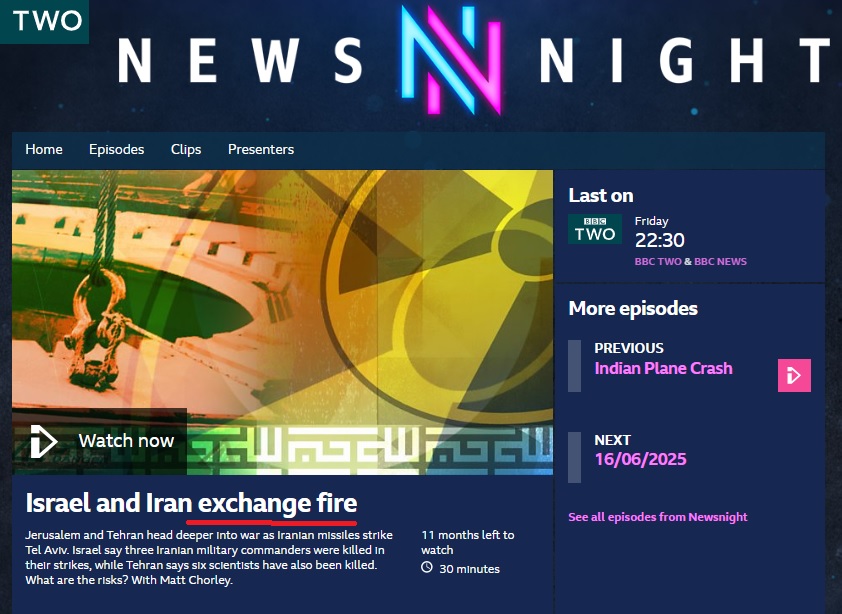
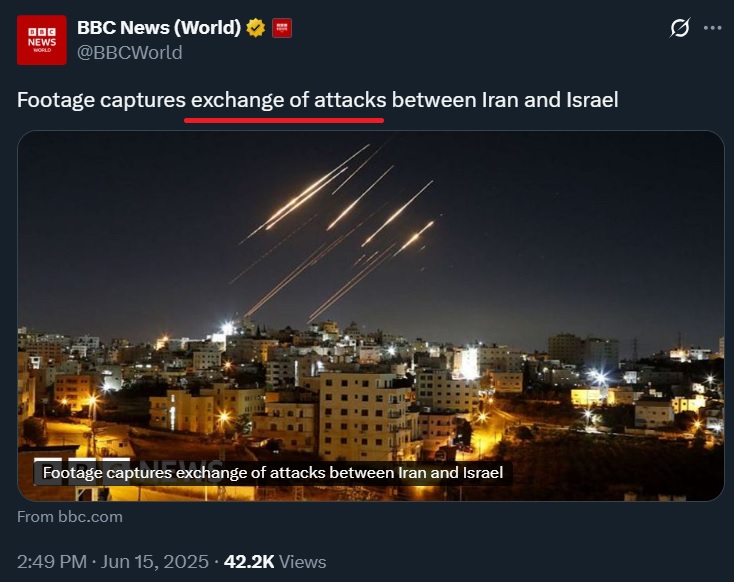
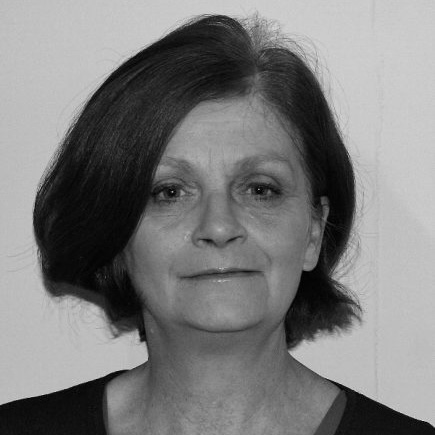
Hadar Sela was born in the north of England and has lived in Israel for over three decades. She has a special interest in the influence of the media on the British public’s perceptions of the Middle East and the Islamist networks operating in the UK and has written pre-emptive reports on several anti-Israel campaigns, including the flotillas and the Global March to Jerusalem in March 2012. Hadar’s work has been published in the Jerusalem Post, The Algemeiner, The Commentator, MERIA Journal and at Harry’s Place, among others.









